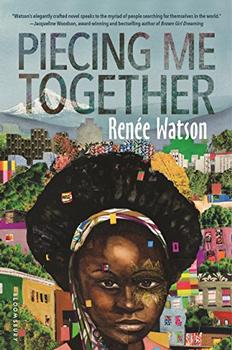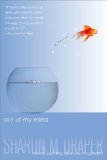Summary | Excerpt | Reading Guide | Reviews | Beyond the book | Read-Alikes | Genres & Themes | Author Bio

Two smart, lively and complicated twelve year olds, Kirsten
McKenna and Walker ("Walk") Jones, take turns narrating this
contemporary stand-alone in fresh, memorable and
idiosyncratic voices. Choldenko's celebrated and
award-winning bestseller,
Al Capone Does My Shirts, relied on time and
place—Alcatraz in the Capone era—for much of its effect and
power. If a Tree Falls at Lunch Period could take
place in almost any American private middle school in the
suburb of almost any present-day American city. The novel's
focus is decidedly internal rather than external, and the
reader lives inside twelve year old heads for the duration.
But Choldenko's unwavering interior focus isn't gimmickry:
it illuminates her young characters' imperfect knowledge of
the world and of themselves, and reflects the
self-absorption typical and probably necessary to their
growth.
Choldenko's artfulness and thoughtfulness are also apparent
in the novel's exploration of what have become stock YA
issues: body image, race, teenaged shadiness and meanness,
and clueless parents. Kirsten often fortifies or comforts
herself with chips, ice cream and candy bars and reports
having gained thirty pounds over a miserable and lonely
summer. While her thin, attractive mother is concerned
enough to take Kirsten to a psychologist for help, and the
mean girls at school call her fat, Choldenko refrains from
letting the reader know if Kirsten's is a cosmetic or a
health problem, or ultimately her problem at all.
In the same way, Walker describes his mother's efforts to
keep him far away from a trouble-making cousin. Although the
nature of the cousin's recent activities is revealed at the
conclusion of the story, we never learn what he's done in
the past to alienate his aunt. Much of the novel's suspense
and surprise derive from what the characters do not know:
the source of Kirsten's parents' marriage-rupture; the
reasons for Kirsten's painful estrangement from a lifelong
friend; or the explanation for Walk's friend Matteo's
willingness to cooperate with a female bully.
In Al Capone Does My Shirts, Choldenko creates a
moving and mysterious character in the young narrator's
disabled sister in part because the girl is described
without any reference to autism: She is who she is without
labels or explanations. If a Tree Falls at Lunch Period's
first person narratives prove equally humanizing to the
tough and uncomfortable questions that the reader, white
Kirsten and African-American Walker ultimately must
confront: How much does race matter and why does it matter?
Choldenko makes certain that Kirsten and Walker recount and
work through their experiences at a deeper than skin deep,
gut level. The loneliness and universality of their first
person voices unite them and us. Choldenko never lets her
readers know too much or characters know enough—about
themselves, their families or other people—to stop thinking,
questioning or growing. Instead, she continually reasserts
the power of the heartfelt moment to destroy, to confuse, to
transform, and to renew.
![]() This review was originally published in The BookBrowse Review in January 2008, and has been updated for the
April 2009 edition.
Click here to go to this issue.
This review was originally published in The BookBrowse Review in January 2008, and has been updated for the
April 2009 edition.
Click here to go to this issue.

If you liked If a Tree Falls at Lunch Period, try these:

by Renee Watson
Published 2018
A timely and powerful story about a teen girl striving for success in a world that too often feels like it wants to break her.

by Sharon M. Draper
Published 2012
Eleven-year-old Melody has a photographic memory. She's the smartest kid in her whole school - but no one knows it, because Melody can't talk. She can't walk. She can't write. Melody's story is one full of heartache and hope. Get ready to meet a girl whose voice you'll never, ever forget.
Your guide toexceptional books
BookBrowse seeks out and recommends the best in contemporary fiction and nonfiction—books that not only engage and entertain but also deepen our understanding of ourselves and the world around us.